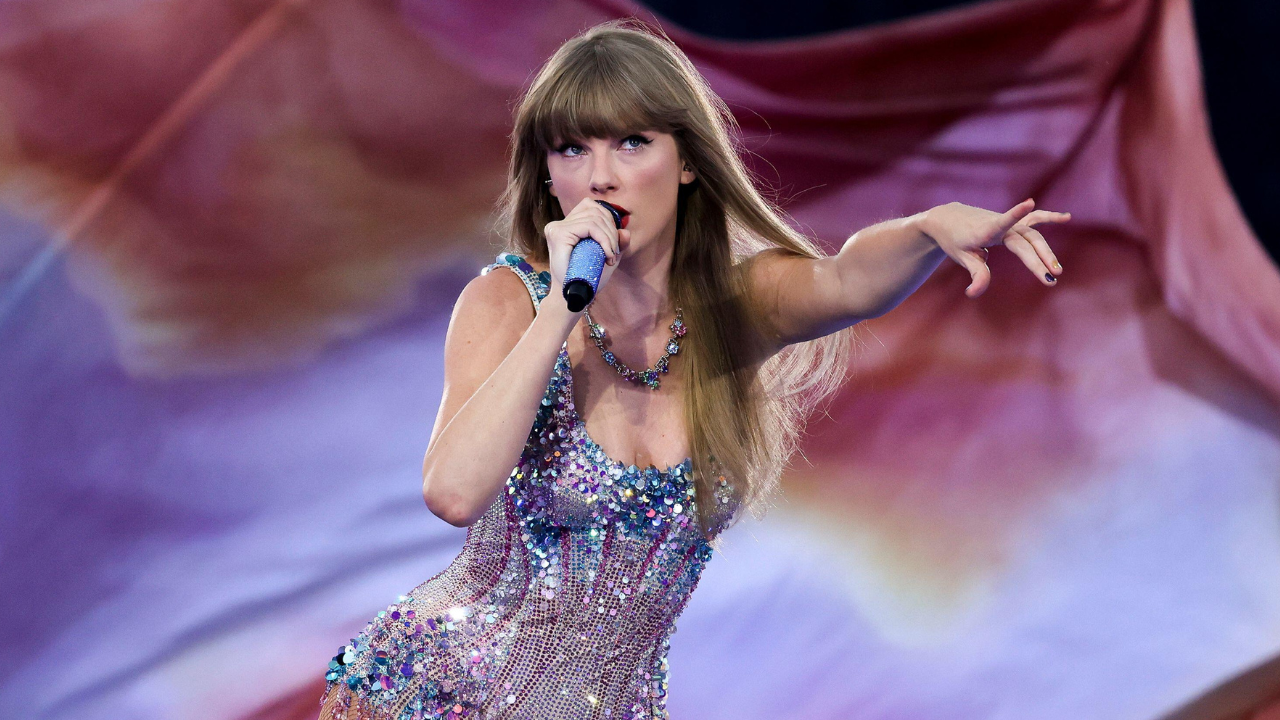
As Taylor Swift rolled into Los Angeles this week, the frenzy surrounding her record-breaking Eras Tour was already in high gear. Headlines gushed that she had given $100,000 bonuses to her crew. Politicians asked her to postpone her concerts in solidarity with striking hotel workers. Scalped tickets were going for $3,000 and up. And there were way, way too many friendship bracelets to count. These days, the center of an otherwise splintered music world can only be Taylor Swift.
The pop superstar’s tour, which is now finishing its initial North American leg with six nights at SoFi Stadium outside Los Angeles, has been a both a business and a cultural juggernaut. Swift’s catalog of generation-defining hits and canny marketing sense have helped her achieve a level of white-hot demand and media saturation not seen since the 1980s heyday of Michael Jackson and Madonna — a dominance that the entertainment business had largely accepted as impossible to replicate in the fragmented 21st century. “The only thing I can compare it to is the phenomenon of Beatlemania,” said Billy Joel, who attended Swift’s show in Tampa, Fla., with his wife and young daughters.
In a summer of tours by stars like Beyoncé, Bruce Springsteen, Morgan Wallen and Drake, Swift’s stands apart, in numbers and in media noise. Although Swift, 33, and her promoters do not publicly report box-office figures, the trade publication Pollstar estimated that she has been selling about $14 million in tickets each night. By the end of the full world tour, which is booked with 146 stadium dates well into 2024, Swift’s sales could reach $1.4 billion or more — exceeding Elton John’s $939 million for his multiyear farewell tour, the current record-holder.
Swift has now had more No. 1 albums on the Billboard 200 over the course of her career than any other woman, surpassing Barbra Streisand. With the tour lifting Swift’s entire body of work, she has placed 10 albums on that chart this year and is the first living artist since the trumpeter and bandleader Herb Alpert in 1966 to have four titles in the Top 10 at the same time.
“It’s a pretty amazing feat,” Alpert, 88, said in a phone interview. “With the way radio is these days, and the way music is distributed, with streaming, I didn’t think anyone in this era could do it.” “She is the best C.E.O., and best chief marketing officer, in the history of music,” said Nathan Hubbard, a longtime music and ticketing executive who co-hosts a Swift podcast. “She is following people like Bono, Jay-Z and Madonna, who were acutely aware of their brands. But of all of them, Taylor is the first one to be natively online.”
Swifties have chronicled the stream of celebrity fans who have turned up each night: Julia Roberts, the New York Jets’ new quarterback Aaron Rodgers, even Flavor Flav of Public Enemy. But Swift has also made each show a news event by adding two “surprise songs,” often with headline-grabbing guests. On the July day that she put out a music video featuring Taylor Lautner, an ex-boyfriend, the actor backflipped across the stage in Kansas City, Mo., and paid Swift effusive tribute — “not just for the singer you are,” Lautner said, “but for the human you are.” The crowd registered its approval with an earsplitting roar.
The Taylorpalooza extends to every level of the news media, which began the coverage cycle by chronicling Swift’s ticketing fiasco last November, when fans — and scalpers’ bots — crushed Ticketmaster’s systems, leading to a heated Senate Judiciary hearing. Since then, seemingly no nugget of Swift news has escaped coverage, from the stars in the stands to oddities like a Seattle concert that, according to one researcher, shook the ground with an intensity equivalent to a 2.3-magnitude earthquake.
Music critics have portrayed the Eras Tour as showing Swift at the top of her game as a media-savvy, big-tent talent, a pop star with a knack for grand spectacle as well as the polished artistry of a classic songwriter.
Shania Twain, the country-pop star whose career in some ways prefigured Swift’s, caught the Las Vegas stop of the Eras Tour, a 44-plus song production that goes as long as three and a half hours. She praised Swift’s “beautiful balance” of high-tech stagecraft and intimate performance segments. “I have to applaud her,” Twain said in a telephone interview. “As a performer, I know that work that goes into it.”
The power of Swift’s fan army — and fear of crossing the star, or even appearing to — has kept nearly all of the press about the tour sunny. Though some fans (and parents) balked at the ticket prices and challenges of securing seats, most frustration was directed squarely at Ticketmaster, not Swift. After a few weeks of headlines romantically linking Swift with a frontman some fans considered to be problematic, reports spread in the celebrity pages that they had split. (Swift’s representatives declined to comment for this article.)
